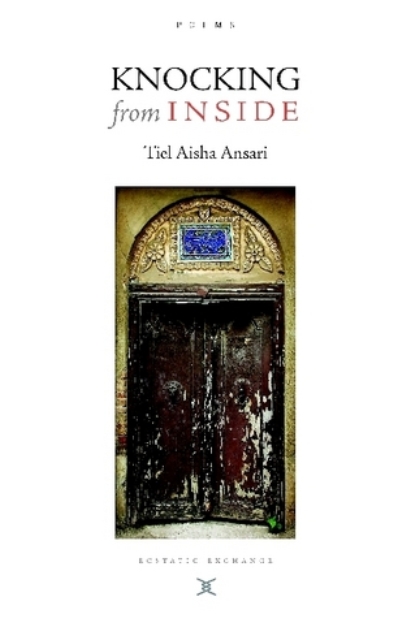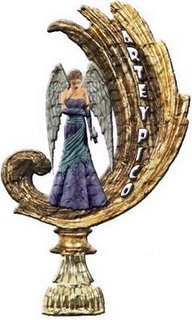Definitions first. For the purposes of this discussion, “religious” fiction has to meet the following criteria:
1) It has to posit that God, a god, or gods exist.
2) Belief in and service of God, a god, or gods, has to be an important motivating force in at least some of the major characters.
3) This one applies mostly to fantasy. Religion has to serve some function other than as a source of magical power (“Take 10 gold pieces to the temple, get a spell”), or as a scorecard for telling the players apart (“I serve the green serpent god, you serve the red bird god, therefore we must fight”).
OK, so already we have problems. Rule 1 excludes some things that most people consider to be major world religions, eg. Buddhism and Taoism. Arguable whether it includes animist religions: do “spirits” count as “gods”? How about religions that rest mainly on ancestor worship? Where you draw these lines will determine whether you include or exclude particular works. For a nice test case, take a look at Walkabout Woman by Michaela Rossner. If you accept that the Rainbow Serpents constitute “gods”, in terms of the internal reality of the novel, then Walkabout Woman satisfies all three criteria. Besides, it’s a great read.
Rule 3 is admittedly pretty subjective. A couple of good test cases here: The first two Paksenarrion books by Elizabeth Moon, I thought, obey Rule 1 but not 2. Pax goes into the military and becomes a paladin mostly as a series of career choices, not particularly out of religious feeling as far as I could tell. The third book definitely changed that, but I’m still a little unsure whether the series as a whole fits Rule 3. Read it yourself and see.
In a somewhat different vein, Fritz Leiber’s classic stories about Fafhrd and the Grey Mouser obey Rule 1, in that the world of Newhon and adjoining areas are just lousy with gods. However, the two rogue heroes' interactions with gods are pretty much limited to robbing their altars, defiling their priestesses, and avoiding their vengeance. Terrific fun most of the time, but no serious commentary on religion here.
In the other direction, Roger Zelazny’s Lord of Light explicitly violates Rule 1. Zelazny makes it clear that the rulers of the planet are not divine; however, most of the populace believes otherwise, and the consequences of their sincere belief are fundamental to the politics of the world. Arguably this one doesn’t even follow Rule 2, since none of the believing masses are among the major speaking parts.
Now, I’m not going to invest much sweat in defending this definition, because in my opinion half the fun of having a definition is in finding the cases that challenge it. The other half is in finding the cases that support it. Any way you slice it, religious fiction is extremely rare in SF, less so in fantasy, even if we are fairly hard-nosed about Rule 3.
Why is that? Well, SF is after all supposed to be about “science”, and many people see science and religion as irreconcilably opposed. This is not true, but arguing from that viewpoint, one would say that any piece of fiction that fits Rule 1 is by definition not “science” fiction, but some other kind of fiction. Though SF works might obey Rules 2 and 3, examining the sociology of religion. The earlier books in Frank Herbert’s Dune series fit this description, as religion was certainly important in the lives of the Fremen, but no statement was made about the existence or non-existence of divinity.
Somewhat more reasonably, SF characteristically proceeds by taking an idea and extrapolating (more or less) rigorously according to known laws (including biological and sociological laws, or at least, reasonable approximations thereof). Introducing an omnipotent being or beings raises the possibility that such laws can be bent, suspended or abolished, which makes the exercise seem a little pointless.
Having said that, I’m going to list a few works of SF that fit all three of my criteria…
James Blish wrote one of the first religious SF novels ever. 1958 was the year, Case of Conscience was the book, it was about Catholicism and extra-terrestrial sentience. I won’t go any further in describing it, except to say that I really wonder what an audience of Golden Age SF readers must have made of it when it was published.
We’re fortunate that Cordwainer Smith’s short fiction has been completely collected in The Rediscovery of Man. He’s not explicit much of the time, but it’s pretty clear there is a divine plan at work behind the scenes in his future history. Strong overt religious motivation in “Dead Lady of Clown Town” and the novel Quest of Three Worlds especially.
I mentioned Frank Herbert already. He wrote a novel called The Godmakers, which explicitly discusses the nature and consequences of divinity.
Madeleine L’Engle’s series starting with A Wrinkle in Time does not get nearly as much recognition as it should, being a “kid’s book”. (Lucky kids.) But the kid-lit ghetto sometimes lets ideas that would be controversial in adult literature slip in under the radar. Wrinkle and its sequels feature angels, cherubim and unicorns rubbing elbows with complex deformations in space-time. Definitely religious. SF or fantasy? Hard to say.
On the fantasy side: well, with Tolkien leading the way and C. S. Lewis following right after, we shouldn’t be surprised to find a much longer list. I’ll just run off a few of my favorites:
Phillip Pullman’s Dark Materials trilogy, read it, ‘nuff said.
Lois Bujold’s Chalion books (we need a new name for this series, the last one takes place in a country far removed from Chalion).
The Kushiel series by Jacqueline Carey—don’t be put off by the S&M/romance novel marketing, this trilogy is as profound an examination of the relationship between human and divine as you’ll find anywhere on the fantasy shelf.
Garth Nix’s Keys to the Kingdom, three out of seven complete so far—this is another one that will be underappreciated because the protagonist happens to be a pre-teen.
Now, make your own lists…
Monday, June 27, 2005
Fantasy, SF and Religion
Subscribe to:
Post Comments (Atom)

















No comments:
Post a Comment